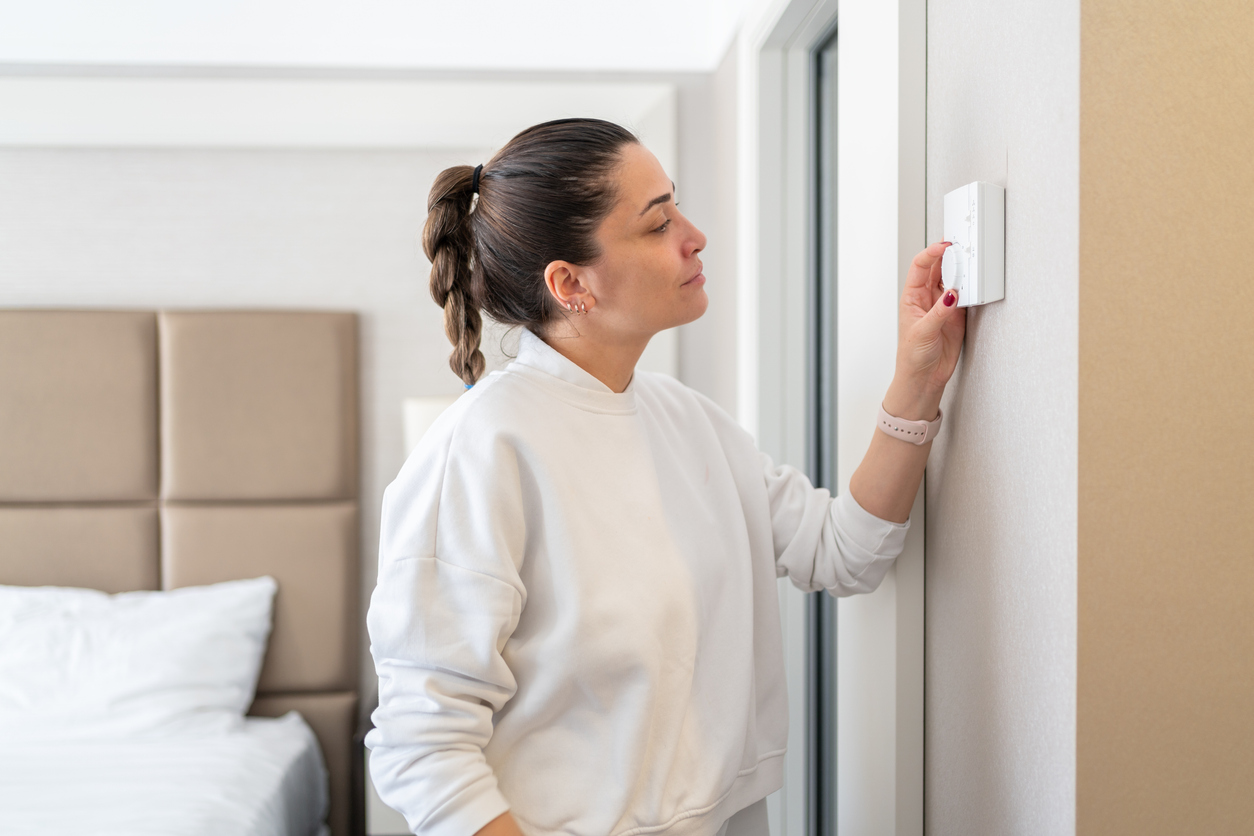
Summer, especially if you live in a hotter climate, can come with temperatures that are not comfortable, and in some cases, not even tolerable. However, your air conditioning system uses a lot of power. If you are watching your energy bills soar or wondering what this is doing to your carbon footprint, there are ways you can save money without sacrificing comfort. Utilizing energy-saving tips such as thermostat programming, sealing leaks, HVAC maintenance, and using fans can help minimize energy consumption, lower bills, and lessen environmental impact.
Set your thermostat as high as you can stand. 78 degrees is a good place to aim for, but people’s tolerances vary. Not only will this save money, but it will also reduce temperature fluctuations when you leave, which can impact your health.
Raise it a few degrees when you are not home; this saves as much energy as turning it off altogether because you aren’t loading the system when you turn it back on. It can save you as much as 10 percent a year. Raising the temperature at night can also help. Consider opening bedroom windows for natural ventilation unless noise is an issue. However, if doing this causes you to wake up sweating, feel free to turn it back down. Try a cooling mattress cover that can help your bedroom feel cooler.
Make things simpler by switching to a programmable or smart thermostat that handles all these tasks automatically.
If you have ceiling or portable fans, you can often reduce your air conditioning by a few degrees. Make sure you are running ceiling fans counterclockwise to create a cooling breeze. Don’t forget to switch them from winter mode!
Fans move air around and make you feel cooler with less energy. Don’t forget to turn them off when you leave the room.
When you observe condensation developing on the interior of your windows, it may indicate the need to reassess the caulking. High energy bills can indicate potential issues with weatherproofing and insulation, prompting the need for an inspection by a home improvement specialist.
If you notice a gap beneath an exterior door, it might be time to consider rehanging it. In the meantime, you can use a draft excluder or a rolled-up bath towel to stop the leak. Additionally, it’s wise to check your doors and windows each spring.
Keep your HVAC system running efficiently with regular maintenance. Changing air filters when the manufacturer recommends them is one of the crucial energy-saving tips, though you may need to do it more often if you have indoor allergies or pets. Additionally, cleaning the evaporator and condenser coils and considering having your ductwork inspected and, if necessary, sealed can further contribute to energy efficiency.
If your HVAC system is old, keep an eye on it and consider replacing it with something newer and more efficient.
In scorching humid climates, natural ventilation can be more beneficial. But if you have cooler outdoor temperatures in the early morning and evening, open your windows for natural ventilation. Remember to always keep screened doors closed, especially in the evening; this simple action helps keep pesky mosquitoes outside where they belong.
Use window coverings strategically. Close shades and blinds during the hottest part of the day, and consider closing the shades when you leave for work. If you are home and need natural light, close the shades or blinds on your south-facing windows as a compromise. This reduces solar heat gain.
Any electronics in your home are a potential source of heat. Unplug electronics that are not in use. Replace old appliances with newer, energy-efficient ones. If you still have incandescent bulbs, get rid of them. They are inefficient and generate heat. Replace them with LED bulbs that produce very little heat.
If you have a grill, consider cooking outside on the hottest days. Use the microwave, not the stove, when possible. If neither of these options is available, opt for recipes that require shorter cooking periods at higher heat and incorporate salads; these foods generally generate less warmth.
With energy-saving tips, you can stay cool, and comfortable, and save money simultaneously. If you need to upgrade your HVAC system or want to inspect your windows and ductwork for leaks, contact us today.
Your one-stop solution for total comfort:
heating, cooling, electrical, and air quality
Our Hours
Monday-Friday: 8 am – 5 pm
Saturday: 24/7 Emergency Service
Sunday: 24/7 Emergency Service

Serving the heating, cooling, electrical, and air quality needs of the greater Richmond area including Chesterfield, Midlothian, Mechanicsville, Short Pump, Powhatan, and Chester.
Fully Licensed and Insured State Registered Class A Contractor Class A 2705188124 HVA RBC GFC
Join our newsletter
©2025 Capital City Heating and Cooling | Performing HVAC Services in Midlothian, VA | 804-449-7053